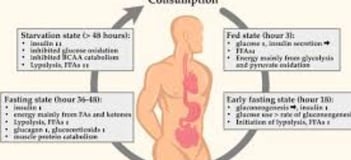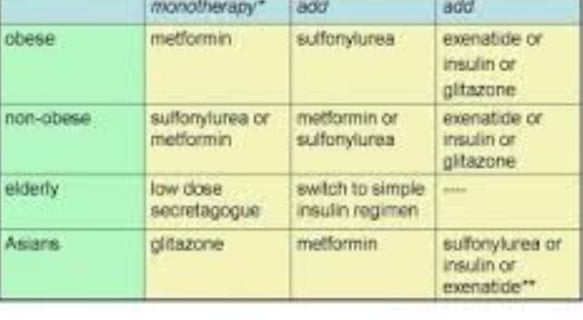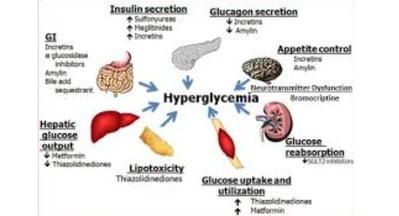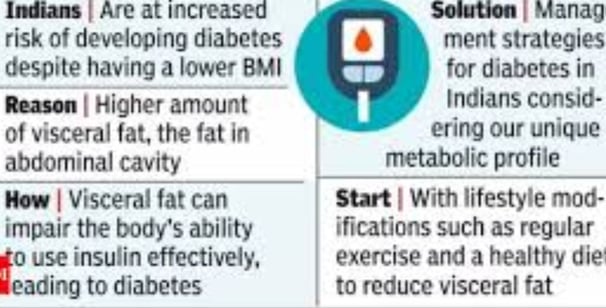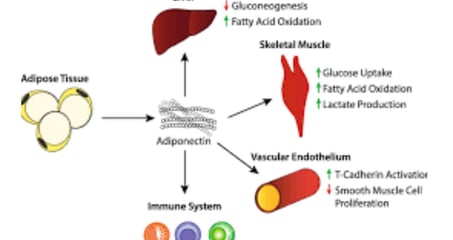
Diabetics Ketoacidosis - fasting what is going on
Explore the risks associated with diabetes drugs, complications from ketoacidosis, and how certain medications can lead to vision loss. Learn how fasting and weight loss can effectively help control diabetes and improve your health.
DIABETES
Dr Hassan Alwarraqt
7/25/2024


Diabetic Ketoacidosis - fasting what is going on
weight loss drugs
liraglutide (Saxenda), semaglutide (Wegovy), and tirzepatide (Zepbound)
drugs that can cause weight loss & control diabetes
Bupropion-naltrexone (Contrave)
Liraglutide (Saxenda)
Orlistat (Xenical, Alli)
Phentermine-topiramate (Qsymia)
Semaglutide (Wegovy)
Setmelanotide (Imcivree)
can weight loss cause eye problems
can weight loss cause eye problems
Yes, especially if your average blood sugars are significantly different
When Losing Weight Means Losing Your Eyesight
Woman's weight-loss surgery leads to vision loss
Vitamin A deficiencies after weight-loss surgery are not uncommon
Wegovy and Ozempic may be associated with a rare eye condition
semaglutide, sold as Ozempic and Wegovy, have a higher risk of developing a form of blindness due to optic nerve disease known as non-arteritic anterior ischemic optic neuropathy (NAION)
Anti-diabetic drugs and weight loss in patients with type 2 diabetes
Intermittent fasting may reverse type 2 diabetes
suggest that the 5:2 meal replacement strategy may be an effective initial lifestyle intervention for early managing type 2 diabetes
Prandial glucose regulators are generally safe- but they do have some adverse effects
Hypoglycaemia: They can cause hypos, but these are less common than with sulfonylureas.
Nausea.
Gastrointestinal disturbance, including diarrhoea and constipation.
Abdominal pain.
Allergic skin reactions.
Liver inflammation.
When to stop metformin
having a fasting or pre-meal blood glucose level of 80–130 milligrams per deciliter (mg/dL) having a random or after-meal blood glucose level of under 180 mg/dL.
if the eGFR is below 30 ml/minute/1.73m2. at risk of eGFR falling below 45ml/minute/1.73m2.
What is the most serious side effect of metformin
lactic acidosis, a rare but potentially life threatening condition characterized by the buildup of lactic acid in the bloodstream.
Does metformin affect autophagy
able to trigger autophagy by AMPK activation and subsequent inhibition of mTOR
What are the side effects of fasting for diabetics
a headache hypoglycemia
Can I take metformin while fasting
the patient should not take it on the day of fasting if it's a 24-hour fast
What can cause reactive hypoglycemia
Alcohol.
Some surgical procedures, such as gastric bypass or other bariatric surgery.
Metabolic conditions inherited metabolic disorders.
Certain types of tumors
What drugs block autophagy
The antimalarials chloroquine (CQ) and hydroxychloroquine (HCQ) are the only two compounds used to inhibit autophagy
Does glucose affect autophagy
in a state of high glucose, autophagy is inhibited
Do antibiotics affect autophagy
penicillin induced autophagy which in turn caused apoptosis
What increases autophagy the most
Fasting— optimal way to activate autophagy. Your body is going to recycle existing components to meet energy needs.
with plenty of fruits, vegetables, lean proteins, and whole grains.
The London Diabetes Centre
https://londondiabetes.com/news-and-events/common-side-effects-of-diabetes-medication/
the National Center for Biotechnology Information
https://www.ncbi.nlm.nih.gov/pmc/articles/PMC6533625/
https://www.sciencedirect.com/science/article/abs/pii/S0168822719300610
mayoclinic
https://www.mayoclinic.org/diseases-conditions/type-2-diabetes/expert-answers/byetta/faq-20057955
https://jmedicalcasereports.biomedcentral.com/articles/10.1186/s13256-022-03347-1
https://www.drugs.com/health-guide/diabetic-ketoacidosis.html
keywords
autophagy,the risk of diabetes drugs,diabetes
Periodontal disease , the complications of ketoacidosis, complications of diabetes mellitus drugs,medications cause, vision loss,what drugs,metformin while fasting,weight loss ,weight loss & control diabetes,eye problems,fasting,
Questions and Answers About Diabetes, Diabetic Ketoacidosis, and Fasting
What is diabetes, and how does it affect the body?
Diabetes is a condition where the body is unable to effectively transport glucose (sugar) from the blood into the cells, leading to high blood sugar levels.
This occurs either due to a lack of insulin production or because the cells become resistant to insulin.
Insulin is a hormone secreted by the pancreas that helps glucose enter the cells to be used as an energy source.
When glucose cannot enter the cells, they remain starved for energy despite an abundance of glucose in the blood.
What is the difference between type 1 and type 2 diabetes?
Type 1 Diabetes:
Occurs due to the immune system destroying beta cells in the pancreas, leading to a severe insulin deficiency.
Usually develops in childhood or adolescence and requires lifelong insulin injections.
Type 2 Diabetes:
Occurs due to insulin resistance, where the body's tissues do not respond properly to insulin.
Initially, the body produces more insulin to compensate, but over time, pancreatic beta cells may lose their ability to produce sufficient insulin.
Risk factors include obesity, lack of exercise, and high blood pressure.
What is diabetic ketoacidosis (DKA), and why is it dangerous?
Diabetic ketoacidosis (DKA) is a serious complication of diabetes caused by a severe lack of insulin.
When there is not enough insulin, the body starts breaking down fats for energy, producing ketones.
A buildup of ketones makes the blood acidic, which affects the function of internal organs.
Symptoms include nausea, vomiting, abdominal pain, rapid and deep breathing (Kussmaul breathing), fruity-smelling breath, and, in severe cases, loss of consciousness and life-threatening brain swelling.
DKA requires immediate medical treatment, including fluids, insulin therapy, and electrolyte correction.
What are the symptoms of uncontrolled diabetes?
Key symptoms of uncontrolled diabetes include:
Polyphagia: Increased appetite due to the inability of cells to access glucose for energy.
Glycosuria: Presence of glucose in the urine due to high blood sugar levels.
Polyuria: Frequent urination as glucose draws water into the urine.
Polydipsia: Extreme thirst due to excessive water loss through urination.
How is diabetes diagnosed?
Diabetes is diagnosed through several tests:
Fasting blood glucose test: Measures blood sugar levels after fasting for 8 hours.
100–125 mg/dL: Prediabetes
126 mg/dL or higher: Diabetes
Random blood glucose test: Measures blood sugar at any time. A level of 200 mg/dL or higher suggests diabetes.
Oral glucose tolerance test: The person drinks a glucose solution, and blood samples are taken over time to assess how well the body processes sugar.
HbA1c test: Measures the percentage of hemoglobin bound to glucose in the blood.
5.7%–6.4%: Prediabetes
6.5% or higher: Diabetes
What are the risks and complications of uncontrolled diabetes?
Potential complications of uncontrolled diabetes include:
Cardiovascular disease: Increased risk of heart disease and strokes.
Diabetic retinopathy: Damage to blood vessels in the retina, which can lead to blindness.
Diabetic nephropathy: Kidney damage, reducing their ability to filter blood.
Diabetic neuropathy: Nerve damage causing symptoms like numbness in the limbs.
Diabetic foot ulcers: Slow-healing wounds that may lead to foot amputation.
Can people with diabetes fast?
What precautions should be taken?
Some people with diabetes can fast, but it depends on their health condition.
Patients should consult their doctor or healthcare team before fasting to determine if it is safe.
In general, patients who take insulin or have complications such as eye, kidney, or nerve damage should avoid fasting.
For those who choose to fast, important precautions include:
Regularly monitoring blood sugar levels
Adjusting medication dosages as advised by a doctor
Eating balanced meals with low-glycemic-index foods
Drinking enough water to prevent dehydration
What is the difference between ketosis and diabetic ketoacidosis (DKA)?
Ketosis: A natural process where the body burns fat for energy due to low glucose availability, producing ketones.
Occurs during low-carb (keto) diets or fasting.
Generally not harmful.
Diabetic ketoacidosis (DKA): A dangerous condition caused by a severe insulin deficiency, leading to excessive ketone buildup that makes the blood acidic.
Requires urgent medical treatment.


